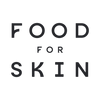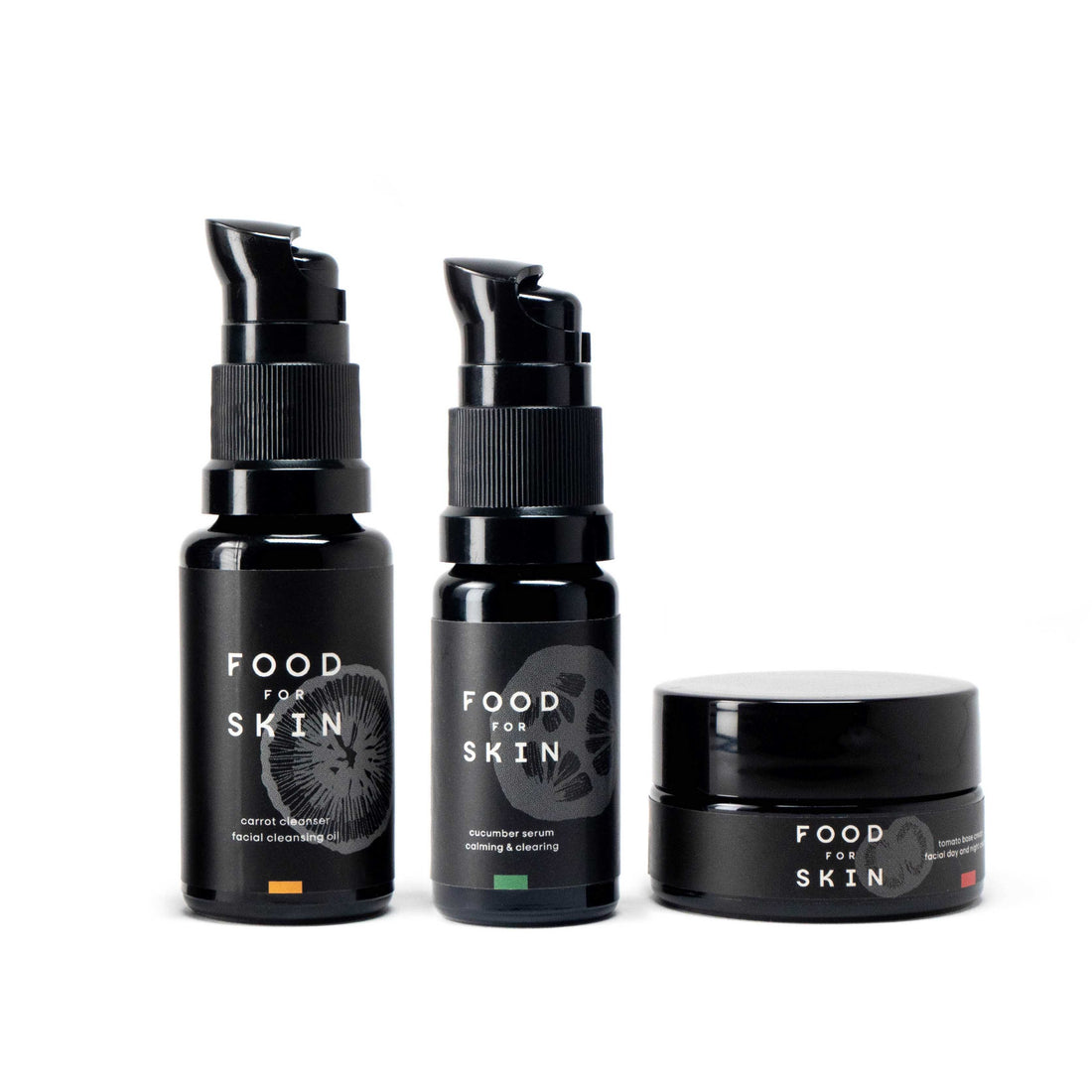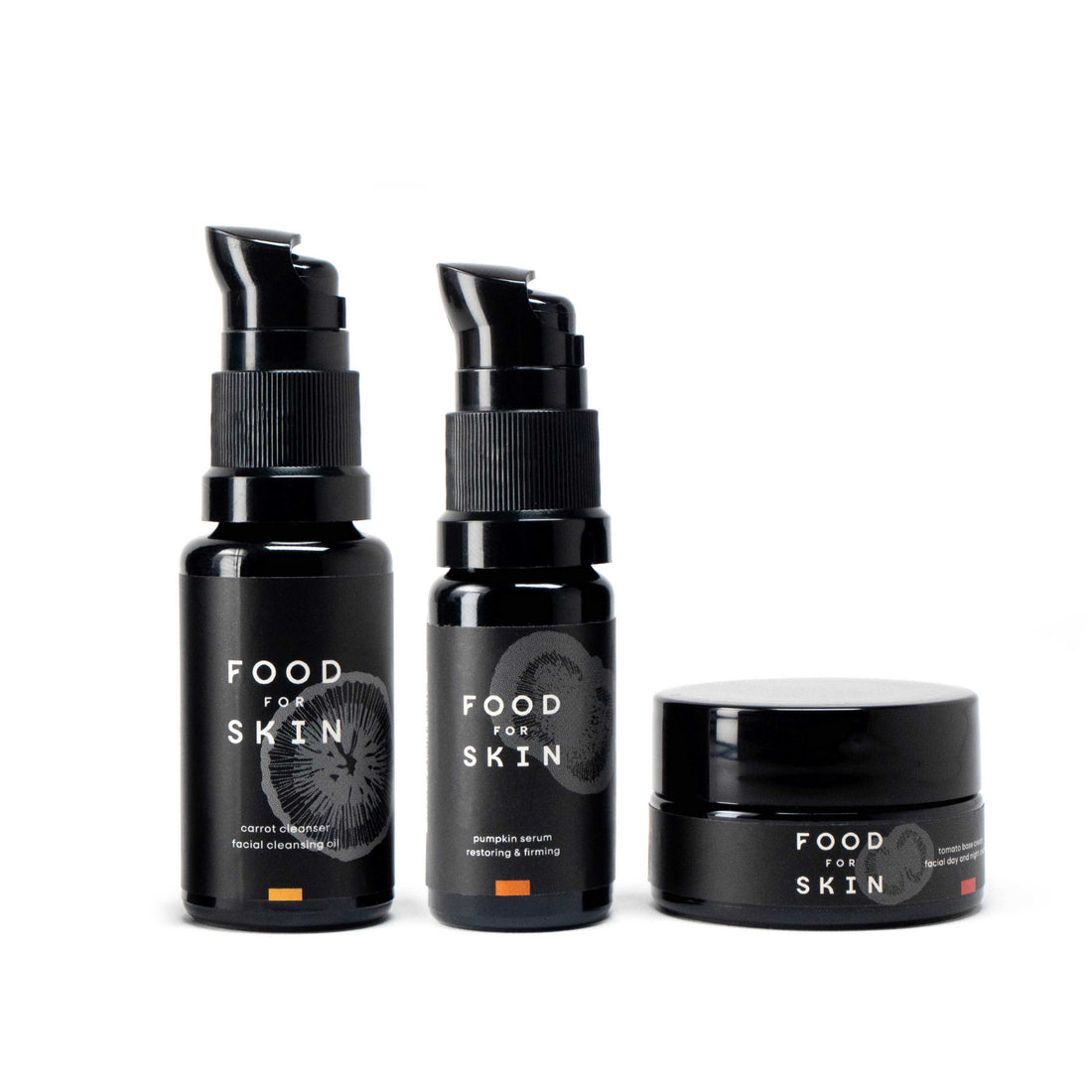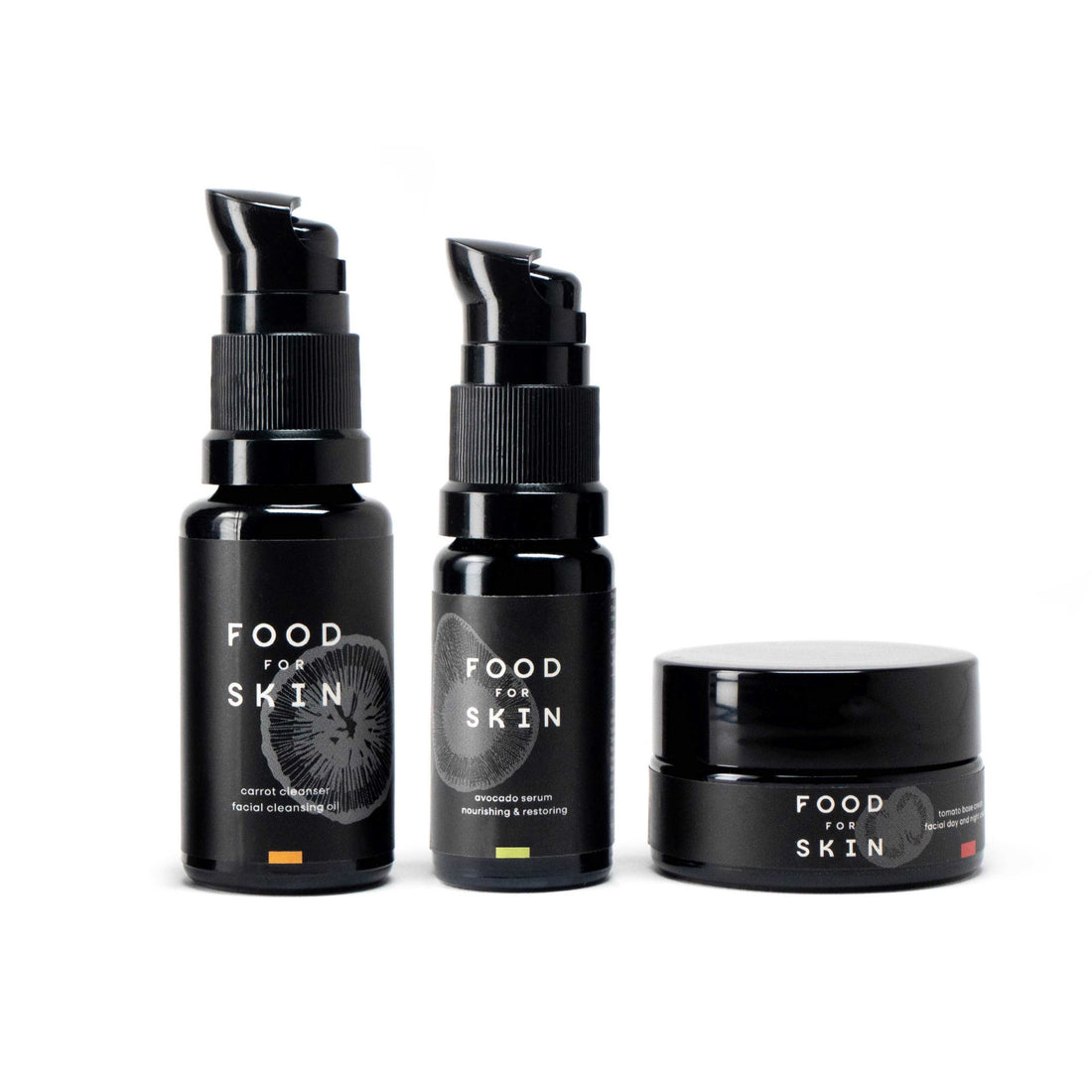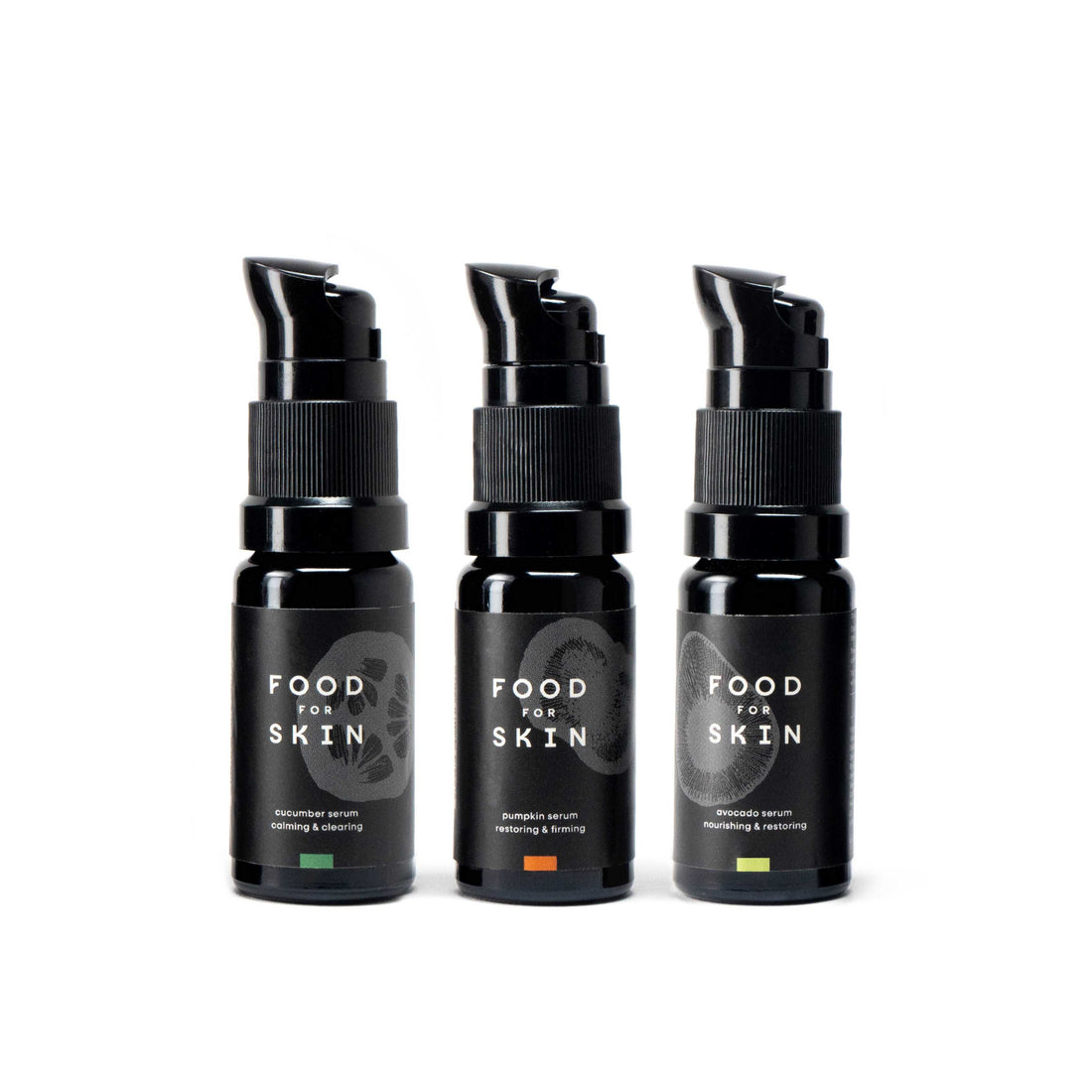Until a few years ago, I had no idea what all those unreadable skincare labels meant. Do you? When I started looking for 100% natural products, I got lost in a forest of certifications—Ecocert, Natrue, Fairtrade—and an even bigger forest of complicated names like Dimethicone, Allantoin, and Cyclo-wattes. Did I have to look it all up? And where could I actually check if something was truly vegan, cruelty-free, or natural?
When we wanted to get certified with Food for Skin, I seriously delved into it. What I discovered: there are great quality labels, but also a lot of "we at WC-eend" variations, mainly created by the industry itself. Even the strictest standards allow ingredients that I don't think belong there. That's why we based our approach on the strict Natrue standard (not yet officially certified, the costs are high), but honestly, even there are categories that the consumer never sees.
My conclusion? A quality mark doesn't tell the whole story. Check the ingredients yourself, ask your favorite brand questions, and stay curious. Because only if we consumers are critical will the big players truly change. But how do you go about checking those ingredients?
What does INCI mean on cosmetics?
INCI stands for: International Nomenclature of Cosmetic Ingredients, the international naming system for cosmetic ingredients. And that's why the backs of labels are truly illegible and unrecognizable. You have to use the official names of those ingredients. Did you know, for example, that Solanum Lycopersicum is "just" a tomato? Neither did we!
When we launched Food for Skin, we intended to list only "recognizable" ingredients on the back, even though we weren't aware of INCIs at the time. It's good that there's a single international standard for this, but does it really help consumers?
Why checking ingredients in cosmetics is important
Ingredients determine how good a product really is for your skin and the planet. It's not just about avoiding microplastics, but also silicones that can seal your skin, fragrances that can cause irritation, and allergens you'd rather not put on your skin every day. By reading labels or using an app, you can quickly discover what's really in your jar. This way, you can choose products that nourish your skin instead of damaging it.
Read here why choosing cosmetics is much better for the planet.
How can you check ingredients?
There are several ways to check ingredients:
-
Reading labels: determine which ingredients are important to you and look them up in the INCI list.
- Ingredient checker websites: enter your favorite product or ingredient and find out how it scores.
-
INCI apps: scan the product and get an instant overview with scores.
-
Microplastic app: scan the barcode and see immediately if it contains microplastics.
Popular ingredient checkers and apps
Our tips to quickly see a list of good and bad skin care ingredients:
1. The PlasticFreeFuture app
This one's from the Plastic Soup Foundation. With just one photo of the label, you'll know if your product contains harmful microplastics. We challenge you to scan your bathroom! Download here and read more about our partnership here.
2. Website incidecoder.com
And, it's a bit more work, but the website incidecoder.com is great! You can search for your favorite product (provided it's a major brand) or a specific ingredient. You'll then read what that ingredient does or doesn't do for your skin and what it's made of.
3. Download an INCI app
There are several apps that scan your skincare product to identify harmful or harmful ingredients. They also highlight potential irritants. You can also easily find lists of all harmful ingredients in cosmetics and learn more about them.
INCI apps can help you quickly gain insight, but they're not foolproof: they often lack context, dosage, and current information, and the same substance can be red in one app and green in another. So consider them a useful tool, but also pay attention to what you consider important and ask the brand questions.
Some options are:
Check ingredients with Food for Skin
At Food for Skin, we make it easy for you. You'll find the official INCI list on every product , ensuring transparency and compliance. You can also find our products in the INCI beauty app by scanning the barcode. But because those names often seem like abracadabra, we translate them into clear, Dutch explanations on our product pages . This way, you'll know exactly which vegetable, oil, or vitamin you're using without having to Google it. Our ingredients list lists all the ingredients of all our products, along with their properties.
Frequently Asked Questions about Checking Ingredients
1. What ingredients should I avoid in skincare?
That all depends on what you consider important: no microplastics, no perfume, no parabens. These are the ingredients we have blacklisted: Acetone, Aluminum, Water, Artificial Colors, BHA, BHT, Bisphenols, Copolymer, Formaldehyde, GMO, Lead, Mineral Oils, Microplastics, Nanoparticles, Octinoxate, Octocrylene, Oxybenzone, Propylene Glycol, Polyethylene Glycol, Parabens, PEG, Petroleum, Parfum, Phthalates (Phthalates), Silicones, SLS – Sodium Lauryl Sulfate (SLS), SLES – Sodium Laureth Sulfate (SLES), Synthetic Alcohol (Synthetic Alcohol), Toluene (Toluene) and Urea (Urea).
2. Are INCI apps always reliable?
INCI apps can help provide quick insight, but they're not foolproof: they often lack context, up-to-date information, and dosage. Interpretation can also vary. The same ingredient can be rated red in one app and green in another. So consider them a useful tool, but also trust the ingredients list itself and ask the brand questions.
3. How often do ingredient lists change?
Ingredient lists don't change daily, but brands sometimes adjust them to accommodate a new formula, improved shelf life, or changes in legislation. So, it's possible that a product looks the same, but the INCI list is still slightly different.
Can I also check allergens in cosmetics?
Yes, that's possible. Allergens are required to be listed on the INCI list if they exceed a certain amount. Allergens are also easily identified using an INCI app. Do you have a known allergy? So always check the list carefully.
Conclusion: with an ingredient checker you get a better grip on cosmetics
Checking ingredients in cosmetics sounds easy, but I know from personal experience that it can be quite complicated: quality labels that promise all sorts of things, INCI names I could barely pronounce, and apps that contradicted each other. Yet, I gradually learned that with a little curiosity and the right tools—reading labels, an ingredient checker, an INCI app—you can gain control over what you put on your skin every day. Microplastics are one aspect of that, but it's more about the bigger picture. My advice: keep asking questions, even of your favorite brand. That's the only way we can make the market a little more fair and transparent together.

